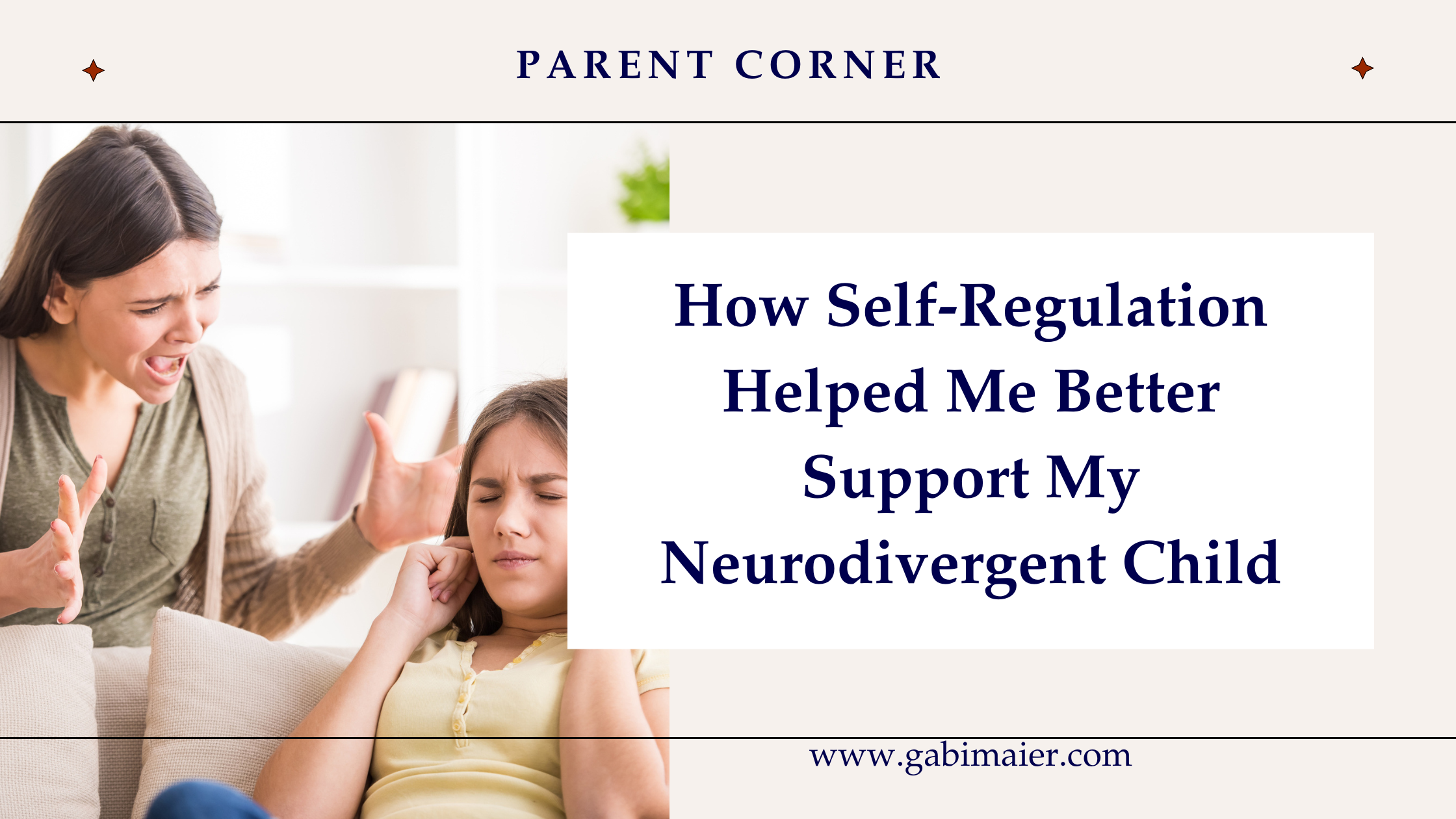How Self-Regulation Helped Me Better Support My Neurodivergent Child
If you’ve ever raised your voice at your child and instantly regretted it, you’re not alone. If you’ve told yourself this time I’ll stay calm, only to lose your temper five minutes later … yes, I’ve been there, too. As a mom of a neurodivergent son, I navigate these emotional minefields every day. And as someone who teaches workshops for parents of kids with ADHD, I know this struggle is heartbreakingly common.
One of the most frequent things I hear from parents in my sessions is this: “I know it’s not their fault. I know their brains are wired differently. But I still get so triggered. Why can’t I keep my cool?”
The truth is, knowing what’s going on in our child’s brain doesn’t mean we’re magically able to regulate our own emotions. We might understand executive dysfunction, delayed emotional development, and poor impulse control on a rational level. But when our kid is screaming at us, throwing their homework across the room, or refusing to get dressed for school, our own nervous system often goes into fight-or-flight mode.
And if you’re a neurodivergent parent yourself? Multiply that stress by ten.
Why self-regulation matters more than we think
Here’s something I’ve learned the hard way: the only behavior I can truly control is my own. I can’t force my son to calm down. I can’t logic him out of a meltdown. But what I can do is regulate myself: my tone, my volume, my energy. When I stay calm, he has a better chance of calming down too. When I yell, everything escalates.
Self-regulation isn’t about being perfect. It’s about staying connected to our values, to our bodies, and to the kind of parent we want to be. And it starts with noticing the moment before we react.
Some days, I feel like I’m doing a heroic job. I breathe deeply, remind myself that this is just a hard moment, and respond with patience and empathy. But on other days I snap. I raise my voice. I say something that sounds eerily like my own parents. Something I swore I’d never say. And then I feel guilty for hours.
But I’ve learned that guilt isn’t useful. What helps is reflection and preparation.
What helps me stay regulated (most of the time)
Here are a few self-regulation strategies that have made a real difference in my parenting, shared both as a professional and as a mom who’s very much still learning:
1. Keep a strengths journal
It’s easy to focus on what’s going wrong when everything feels like a battle. But I try to write down at least one thing each day that I admire in my son, e.g. his creativity, his sense of humor, his resilience, and two to three more things that went well that day. This helps me stay grounded in love and appreciation, even when things get hard. You can read more about how to keep a strengths journal here.
2. Take breaks (yes, parents get time-outs too)
When I feel myself about to explode, I give myself permission to leave the room. I tell my son, “I need a moment to calm down so I can listen better.” It’s not a punishment, it’s a way of modeling emotional intelligence.
3. Plan rewards and consequences ahead of time
Blurted punishments rarely work. They’re often too harsh, unrealistic, or just confusing. I’ve found it helpful to write possible rewards and consequences on a whiteboard in advance. That way I don’t have to think in the heat of the moment. I just point and say, “Remember our agreement?”
4. Make a pact with your child
Inspired by Ben Furman’s solution-focused approach, I sat down with my son and said: “Let’s both work on keeping our anger in check this week. You can remind me when I get loud, and I’ll remind you, too.” We made it a shared mission instead of a top-down rule. It changed everything. Stay tuned for another blog post on a detailed description of Furman’s skill-based approach.
5. Schedule time for yourself
Easier said than done, I know. But parenting a neurodivergent child is intense, and we need to recover from that intensity. I carve out time for a run, a walk in nature, a call with a friend, or just twenty minutes alone with a book. When my tank is full, I’m much better at staying calm when storms hit.
The bigger picture
Ultimately, our kids learn emotional regulation by watching us. If we yell, they learn to yell. If we stay calm (or calm ourselves down quickly), they learn that too. We don’t have to be perfect, but we do need to be intentional.
And when we mess up? We repair. We apologize. We show them that it’s okay to lose it sometimes but it’s what we do afterwards that matters most.
If there’s one thing I want parents to take away from my workshops and from this blog it’s this: self-regulation is a practice. It’s not a personality trait or a superpower you either have or don’t. It’s something you can build.
Start small. Start messy. Start today.
Because when we learn to regulate ourselves, we give our children the greatest gift: the ability to do the same.

